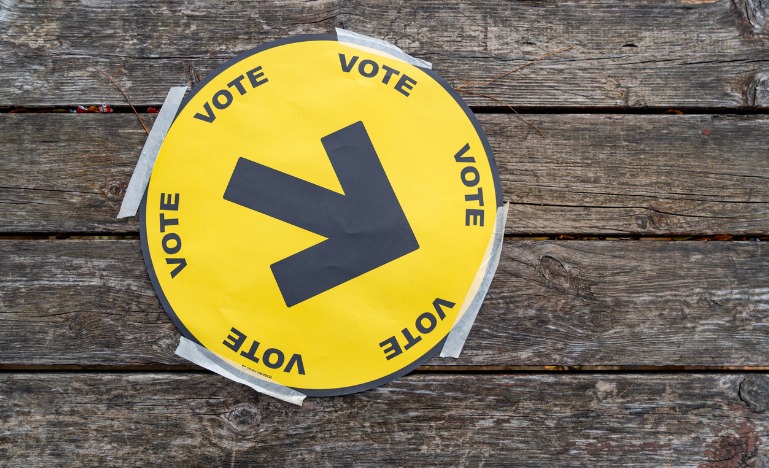Why challenge the minimum voting age in court?
Using the courts is far from ideal to bring it down, but that's what happens when the political process ignores private members who have introduced legislation on the subject.

Canada’s minimum voting age is in the news again, thanks to litigation that has been launched to bring it down from 18, where it has been for half a century. I wrote about the merits of this issue years ago, in the context of a private member’s bill that would set the voting age at 16 had it been enacted.
I stand by the substantive points I made then, and have little to add to them. But a couple of distinctive issues regarding the attempt to lower the voting age through the courts rather than via legislation are worth noting.
It is sometimes suggested that there is something disreputable about trying to accomplish through the courts change that one has failed to secure through the political process. I don’t think this is inappropriate, at least as a general matter. The whole point of setting out legal protections for individual rights is to provide an alternative to the majoritarian democratic procedures to get them recognized. There is nothing wrong, in principle, with using this alternative ― whether or not one has previously tried to rely on politics. This is all the more so when the political process is not functioning well, as is the case here.
But the issue of the minimum voting age is perhaps unusually troublesome in this regard. As I noted in my first post (and of course, this was not an original observation), minimum voting age rules are inherently arbitrary. There almost certainly ought to be some kind of rule, but any given minimum number is probably not noticeably more justified than the number just below. (And who says that the number has to be set at a whole number of years? We can split these hairs in 12, or in 365, without too much inconvenience!)
The young people who have brought this challenge, or their lawyers, are trying to use this difficulty to their advantage in a way I do not much like and that can easily backfire. According to the report linked to above, they do not suggest an alternative minimum voting age. They argue that it is up to the government to justify whatever limitation it wants to impose on their Charter-protected right to vote. That’s technically fair ― section 1 of the Charter does impose this justificatory burden on the government. But, in the context of a right that must be limited in an inherently arbitrary way, not proposing an alternative rule only serves to highlight this difficulty. It may well induce a court to throw up its hands and defer to Parliament’s current choice. And even if the minimum age of 18 is struck down, Parliament could respond by enacting 17, or for that matter 17 years and 11 months, as the new minimum, and we would be back for a new round of litigation.
So, there is a case for the proposition that this particular issue would better be conclusively settled by legislation. This avoids the problem that, when rights are litigated, governments are asked to justify the precise way they limit or circumscribe them, and arbitrary line-drawing becomes suspect. With legislation, a measure ― albeit only a measure ― of fiat is in the nature of the thing. Already Plato and Aristotle pointed out that legislated rules need to be somewhat arbitrary and cannot make allowance for every individual case.
Yet this theoretical case for legislative settlement does not consider how our legislative process actually works. The government dominates the process; Parliament does not make laws but merely approves or rejects proposals put to by the executive. It does so based on whipped votes where parties behave as blocks and the agency of individual members is virtually nil. While the members and senators can introduce bills, they seldom make it past first reading, much less become law. Unless and until the executive takes an interest in an issue, Parliament is virtually certain to ignore it.
This is what has been happening with the minimum voting age. Backbenchers or Senators introduce legislation on this subject in virtually every Parliamentary session, but the furthest any of these bills has gone is second reading in the Senate for Bill S-209 in the last Parliament. To be clear: it’s not that Parliament considers these proposals on the merits and concludes that they are unwarranted because 18 is the appropriate minimum voting age. It’s that this consideration never takes place. The issue of the minimum voting age is not unique in this regard. Our Parliamentary procedure is simply too dominated by the executive and does not leave enough room for legislation championed by individual members and senators to be seriously considered.
This is the context in which we need to assess the merits and demerits of an attempt to litigate the minimum voting age issue. While it does not lend itself terribly well to judicial determination, it is also one that our political process has systematically neglected. Ideally, we would change Parliament’s Standing Orders to make the enactment of legislation proposed by individual members and senators, and not only by the government, a more realistic prospect. New Zealand has done it, and, among other things (not all of them useful or admirable, to be sure!), introduced marriage equality and assisted dying via members’ bills (though there was also a referendum in the latter case), instead of having the courts force it to do so. But so long as we provide no other avenue for people to assert what they think to be their rights, we should expect them to do so in the courts, where they will at least get a hearing, even if the outcome may not be satisfactory for anyone.


